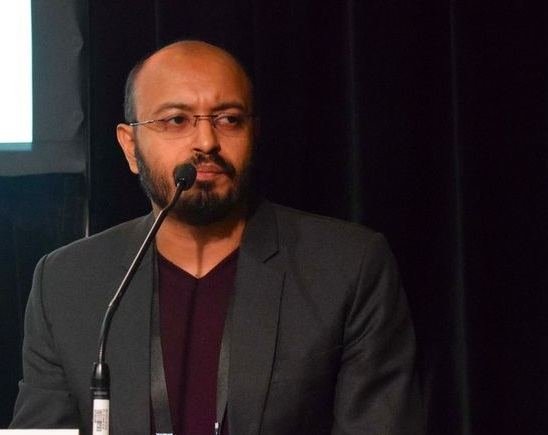More governments are starting to take position of moving away from coal, Executive Director at NGO Forum on ADB, Rayyan Hassan told Trend.
Commenting on the main achievements of 2021 in terms of lowering emissions, Hassan quoted UN Climate Change Executive Secretary Patricia Espinosa.
"I think she articulated four main achievements in terms of global climate in 2021. The first one was that there was increased focus and understanding on adaptation, and governments and financiers started to give resources and focus to adaptation plans as well as reducing emissions. This is important for us in Asia because people most vulnerable to climate change are the ones living in coastal areas or those related to climate for their livelihood, like fisherfolk and farmers. So if adaptation budget or adaptation financing is not there, then the poorest of the poor and the most vulnerable will not be taken care of and the fact that adaptation financing has moved up and adaptation policy has increased is a good thing," Hassan said.
The second thing, he said, was climate finance, which is definitely something that has been argued and lobbied for a way back from the 1997 Kyoto Protocol.
"From our experience, we have seen the ADB move from $30 billion in climate finance in 2014 up to $80 billion in 2020, and now I think it is at a $100 billion of climate finance portfolio until 2030. So these increasing allocations in climate financing are encouraging to see," he said.
However, he pointed out, one needs to very carefully look at this new money and make sure it goes in the right places.
"If it ends up in fossil fuels or some policy loophole, then even though we might have the money we still might not be lowering emissions. In terms of lowering emissions what was achieved for us is a milestone. We have seen the Asian Development Bank announce a coal moratorium, i.e. they have excluded the coal finance so that is a very big victory for NGO Forum on ADB and those for the climate movement," Hassan added.
He also pointed out the announcement that China is targeting net-zero by 2060.
"The idea of net-zero energy systems and the fact that different governments are now shutting down coal-powered power plants for the future is encouraging. My own country, Bangladesh has canceled 9 coal fire power plants in 2021, we have seen the Philippines government announce a coal moratorium in the country, which is definitely positive news," Hassan concluded.
He also noted that the greatest achievement of 2021 in terms of global renewables development is 290 gigawatt of additional renewables generation all over the world, Executive Director at NGO Forum on ADB.
"If you look at the IEA’s annual renewables market report they are saying that by 2026 global renewable energy capacity is going to rise by 60 percent compared to 2020 levels when it stood at 480 gigawatts. Thus, there is a real trend towards electricity production via renewable energy," Hassan said.
Commenting on what countries displayed greater renewables development in 2021, Hassan pointed out India and China.
"India has had a very significant outstanding government policy in terms of renewables development and local business community displayed great interest in this area. India also announced its target to reach 500 gigawatts of renewable power capacity before 2030," Hassan added.
Another country, which, in Hassan’s words, is definitely on the right track domestically is China.
"China continues to demonstrate that it can shut down coal fire power plants, it can manufacture large amounts of solar voltage panels and can also supply them to the region. So these two are definitely key highlight countries," Hassan said.
However, Hassan pointed out that one concern still remains.
"India still finances fossil fuel power plants outside the country, China still finances gas, fossil fuels, and LNG in other countries. So domestically they are definitely transforming in renewables, but globally still a lot needs to be done," Hassan commented.
Commenting on what steps need to be taken in order to accelerate the pace in battling climate change in 2022, Hassan first pointed out that the coal industry is not dead yet, although it is dying.
"Local governments are starting to take the position of moving away from coal, but very big power generation companies, which have invested billions of dollars into coal don’t want to leave it behind. So shifting that conversation is needed," he said.
As an example, he brought up the Japanese government that is still heavy on the coal through JICA and other Japanese financial institutions. Hassan emphasized that collective push on ending this approach immediately still has to be done and there is still work to do.
Talking about replacing coal with gas, he pointed out that gas is equally as problematic.
"There is a lot of interest in combined cycle gas power plants, there is a lot of interest in LNG import, creation of LNG gas terminals, and such. But the problem here is that emissions are not being lowered," Hassan said.
As far as renewables are concerned, Hassan said that it's not something that one can just plug in and expect industries to run on it in 2022 and 2023.
"This would be highly ambitious," he said.
Hassan also pointed out that work on renewable energy is actually not as deeply being talked about as one would want and many governments do not have a clear renewable energy policy.
"There needs to be renewable energy planning. How are you going to shift the grids and upgrade them? There needs to be research on the development and bringing of new technology into the renewable energy sector. We need more efficient solar panels, we need better batteries," he asked.
Hassan believes these are some technological obstacles that, have not been solved in a commercially viable economic manner.
"So there is definitely work on the policy side and on the research and technology side. Obviously with new money in the climate finance, if one puts money in these areas, then hopefully in 5 to 10 years we will find world solution to these issues," Hassan concluded.




















